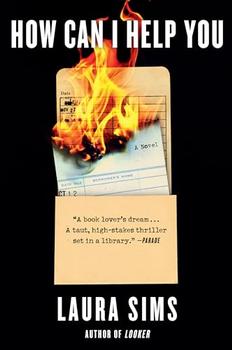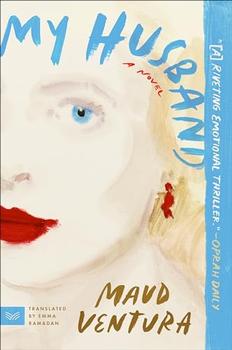Summary | Excerpt | Reading Guide | Reviews | Beyond the book | Read-Alikes | Genres & Themes | Author Bio

Margo loves working at the circulation desk in a small-town public library even more than she likes her new name and life; Patricia hates her failure as a writer more than she does the lowly reference librarian position she accepts to escape her unfinished manuscript at home. In How Can I Help You, two women running away from their pasts run into each other—with explosive results.
Margo Finch is a gregarious, helpful, and charming face at the Carlyle Public Library, where she dutifully checks out patrons' books and polices the computer commons. But Margo has not always been a librarian, nor has she always been Margo, for that matter. She used to be "Jolly Jane" Rivers, an ICU nightshift nurse, who walked away from her job one night, a raft of premature deaths in her wake. Now, as she soaks in her superheated bath, she relishes the triumph of her transformation:
"…it was a great burden, you know, helping so many for so long. Jane loved it, but it hardened her. Margo is softer, and less hurried, too, in her dealing with patients. Patrons. Patrons. It shouldn't matter what we call them, really; they're the same in the end."
But Margo's firm hold on the patrons—including weekly run-ins with a porn addict known as "Friday Guy"—and her position of authority is shaken when she meets Patricia Delmarco, the new reference librarian. Patricia is something new to Margo: sleek and stylish, like a "rare bird … flaunting her feathers in the gloom." But the plumage is mere camouflage for a deep ennui: the rejected manuscript of a first novel that for her represents an existential threat. Sims, through powerful first-person voice, reveals Patricia as a stymied writer "close to oblivion" because "if I wasn't a writer, who or what could I possibly be? Not Patricia, not anything."
When a patron dies unexpectedly in the women's restroom, Margo is caught in an eyebrow-raising and compromising position by Patricia. Sims's revelation of Margo's diabolical perversion is creepy and unsettling enough, but Patricia's reaction is even more startling in that an unexpected frisson now holds both women in its grip. Margo senses acceptance in Patricia's outstretched hand, but Patricia-the-writer senses something much more valuable: a story. A tentative friendship begins and Margo, so careful of her secrets, overshares her past as a nurse in a moment of unguarded pride. She doesn't suspect that Patricia is about to start connecting the dots of who Margo Finch really is…to everyone's detriment.
The characters' dueling monologues are brilliantly arch and bookish, perfect for the story's claustrophobic setting. Margo describes Patricia's searching looks as making her feel "as if she's turning me over in her hands, inspecting my spine and pages for wear, thumbing my table of contents." The thrust and parry of their mutual fascination explores the dirty underbelly of obsession, one that at its heart is selfish and self-centered: what can the other do for me? Patricia is a willing audience to Margo's increasingly harsh and erratic behavior toward the regular patrons, scribbling everything down in her notebook hungrily. Knowing the truth about "my calamitous Jane," Patricia wrestles with the moral implications of this knowledge, but the artistic fire raging inside her—so long dormant—threatens to anesthetize her common sense. Indeed, it may just close the book on her life.
How Can I Help You is a deliciously dark tale with bright prose, smart dialogue, and a barnburner of an ending that comes just a bit too soon. The library will never look quite the same after readers turn the final page.
![]() This review was originally published in The BookBrowse Review in August 2023, and has been updated for the
June 2024 edition.
Click here to go to this issue.
This review was originally published in The BookBrowse Review in August 2023, and has been updated for the
June 2024 edition.
Click here to go to this issue.

If you liked How Can I Help You, try these:

by Jean Hanff Korelitz
Published 2024
After the "insanely readable" (Stephen King) and "perfectly told" (Malcolm Gladwell) New York Times bestseller The Plot comes Jean Hanff Korelitz's equally captivating new novel: The Sequel.

by Maud Ventura, Emma Ramadan
Published 2024
In this suspenseful and darkly funny debut novel, a sophisticated French woman spends her life obsessing over her perfect husband—but can their marriage survive her passionate love?
It is a fact of life that any discourse...will always please if it is five minutes shorter than people expect
Click Here to find out who said this, as well as discovering other famous literary quotes!
Your guide toexceptional books
BookBrowse seeks out and recommends the best in contemporary fiction and nonfiction—books that not only engage and entertain but also deepen our understanding of ourselves and the world around us.